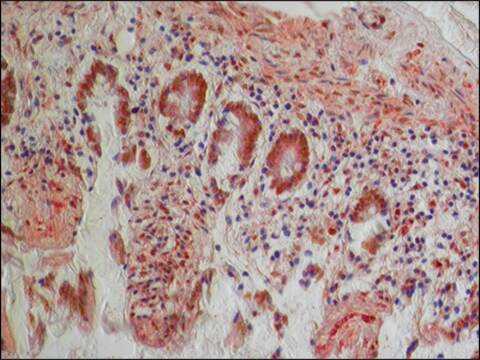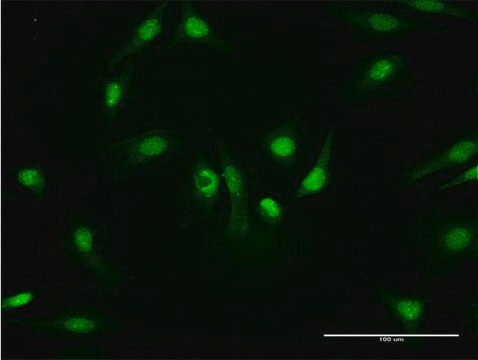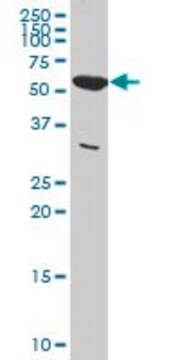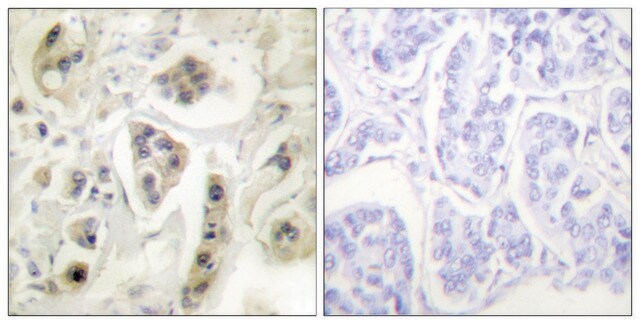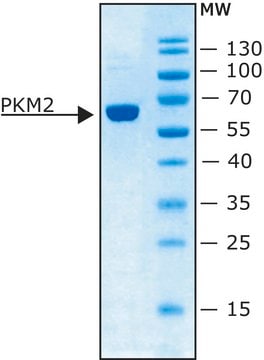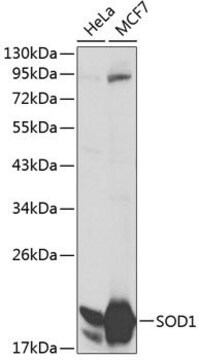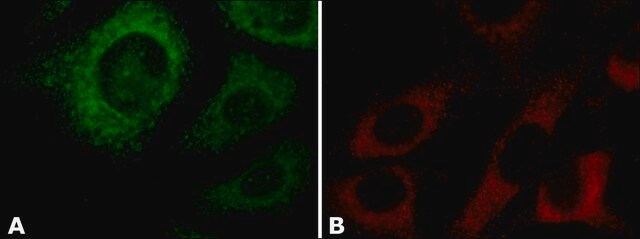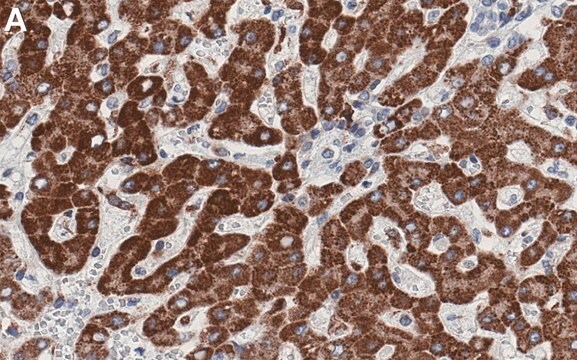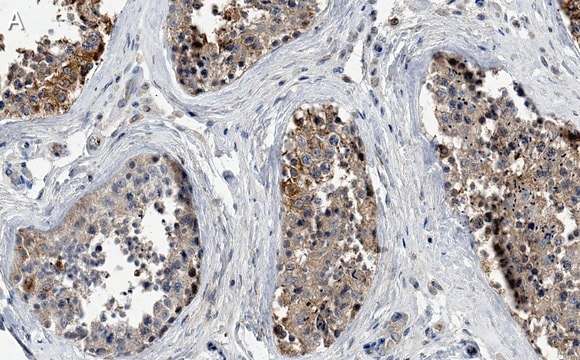SAB4200095
Anti-PKM2 (isoform M2) antibody produced in rabbit
~1.5 mg/mL, affinity isolated antibody
Synonym(e):
Anti-CTHBP, Anti-OIP3(OPA-interacting protein 3), Anti-PK3, Anti-PKM, Anti-Pyruvate Kinase, MUSCLE (isoform M1), Anti-TCB, Anti-THBP1 (thyroid hormone-binding protein, cytosolic)
About This Item
Empfohlene Produkte
Biologische Quelle
rabbit
Konjugat
unconjugated
Antikörperform
affinity isolated antibody
Antikörper-Produkttyp
primary antibodies
Klon
polyclonal
Form
buffered aqueous solution
Mol-Gew.
antigen ~60 kDa
Speziesreaktivität
human
Konzentration
~1.5 mg/mL
Methode(n)
immunohistochemistry: 10-20 μg/mL using formalin-fixed paraffin embedded human colon carcinoma
immunoprecipitation (IP): 2-4 μg using HT29 cell lysates
indirect immunofluorescence: 4-8 μg/mL using HeLa cells
western blot: 0.5-1.0 μg/mL using HeLa cell extracts
Versandbedingung
dry ice
Lagertemp.
−20°C
Posttranslationale Modifikation Target
unmodified
Angaben zum Gen
human ... PKM2(5315)
Verwandte Kategorien
Allgemeine Beschreibung
Spezifität
Anwendung
- chromatin immunoprecipitation (chip) assay
- western blotting
- immunofluorescence
- immunohistochemistry
Biochem./physiol. Wirkung
Physikalische Form
Haftungsausschluss
Sie haben nicht das passende Produkt gefunden?
Probieren Sie unser Produkt-Auswahlhilfe. aus.
Lagerklassenschlüssel
10 - Combustible liquids
Flammpunkt (°F)
Not applicable
Flammpunkt (°C)
Not applicable
Analysenzertifikate (COA)
Suchen Sie nach Analysenzertifikate (COA), indem Sie die Lot-/Chargennummer des Produkts eingeben. Lot- und Chargennummern sind auf dem Produktetikett hinter den Wörtern ‘Lot’ oder ‘Batch’ (Lot oder Charge) zu finden.
Besitzen Sie dieses Produkt bereits?
In der Dokumentenbibliothek finden Sie die Dokumentation zu den Produkten, die Sie kürzlich erworben haben.
Artikel
We presents an article about the Warburg effect, and how it is the enhanced conversion of glucose to lactate observed in tumor cells, even in the presence of normal levels of oxygen. Otto Heinrich Warburg demonstrated in 1924 that cancer cells show an increased dependence on glycolysis to meet their energy needs, regardless of whether they were well-oxygenated or not.
Unser Team von Wissenschaftlern verfügt über Erfahrung in allen Forschungsbereichen einschließlich Life Science, Materialwissenschaften, chemischer Synthese, Chromatographie, Analytik und vielen mehr..
Setzen Sie sich mit dem technischen Dienst in Verbindung.